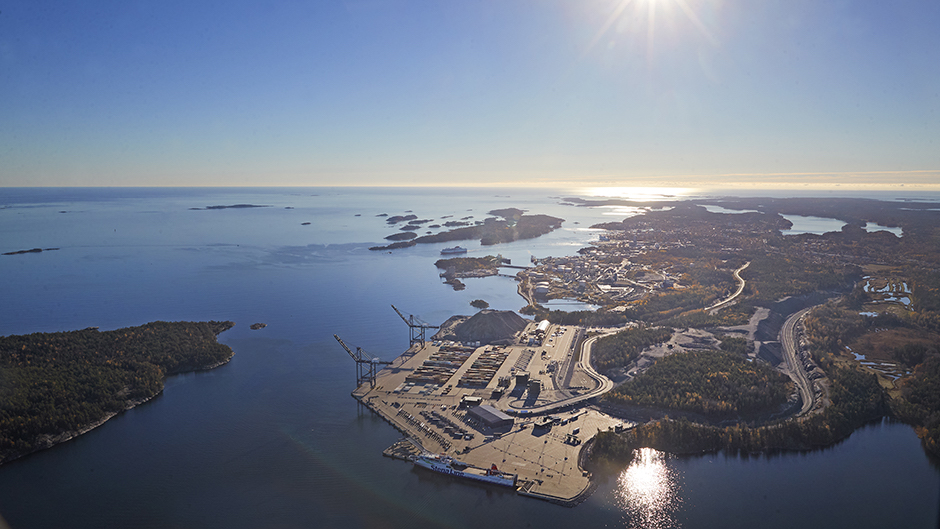This May, the Swedish Energy Agency granted funding for a Feasibility Study for establishing, together with leading actors in the CCS segment, a logistics node for captured carbon dioxide at Stockholm Norvik Port. The long-term goals are to increase the possibilities for emission reduction and the negative emissions by establishing a regional, sustainable and cost-efficient infrastructure for carbon dioxide capture, interim storage and transportation in eastern Sweden. The solution for transportation and handling between the producing facilities and the end capture sites would be a major contributor to Sweden achieving its environmental goals.
An overall proof of concept study has been carried out with all the participating stakeholders to clarify the prerequisites and conditions for establishing interim storage facilities at Stockholm Norvik Port. Ports of Stockholm will now begin an in-depth Feasibility Study with the goal to develop a system solution proposal. The study includes risk analyses, business models and permit considerations. The project has been named NICE – Norvik Infrastructure CCS East Sweden.

The system would be open to third-party access for a higher cost-efficiency and increase the potential for the reduced emissions and negative emissions in long-terms. The work will also inspire other similar regional carbon dioxide infrastructure collaborations.
“Stockholm Norvik, Sweden's newest freight port, opened three years ago. With our state-of-the-art facilities and perfect location in the Stockholm region, being involved in enabling a future sustainable transportation and infrastructure solution was an obvious choice for us,” says Johan Wallén, Chief Commercial Officer at Ports of Stockholm.
The Feasibility Study will provide support for future decision-making by Ports of Stockholm and other stakeholders for the possible next step to take in the planning for a carbon dioxide management and transportation node at Stockholm Norvik. The Feasibility Study will be carried out in collaboration with Stockholm Exergi, Mälarenergi, Söderenergi, Vattenfall, Heidelberg Materials, Nordkalk and Plagazi and is expected to be completed this year.











